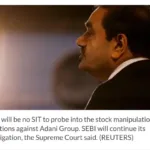In the wake of an ongoing nationwide strike by drivers of public and goods transport vehicles against new penal provisions related to rash driving under the recently adopted Bharatiya Nyah Sanhita (BNS), Bihar is grappling with disruptions in essential services. Chief Secretary Amir Subhani has directed district magistrates and superintendents of police to ensure the smooth functioning of emergency services and to provide safety to drivers attempting to maintain the supply chain.
State Transport Secretary Sanjay Kumar Agarwal emphasized the need for an uninterrupted supply of essential services and the protection of drivers and transporters to prevent inconvenience to the public. The stir, which commenced on January 1, has resulted in public transport and goods transport services coming to a halt.
President of Bihar Motor Transport Federation (BMTF), Uday Shankar Prasad Singh, supporting the strike, highlighted that the revised penal actions would affect all drivers, irrespective of the type of vehicle they operate. Singh mentioned that drivers would resume duties after January 3, giving the Central government time to discuss the matter. However, he warned of an indefinite strike starting February 1 if their demands are not addressed.
While public transport drivers plan to resume work on Thursday, truck drivers have initiated an indefinite strike. This has led to disruptions in the supply of essential commodities, causing a surge in prices of vegetables and fruits. Bihar Truck Owners Association President Bhanu Shekhar Prasad Singh, supporting the indefinite strike, emphasized that approximately five lakh truck drivers have joined the protest since Monday.
Rural Development Minister Shravan Kumar urged the Central government to consider the demands of the agitating drivers. The strike has already had adverse effects on the state’s economy, causing long queues of trucks near eateries and petrol pumps. Brijendra Kumar Singh, general secretary of Bihar Petroleum Dealers’ Association, warned of fuel shortages by Thursday if the situation does not normalize.
In addition to the fuel crisis, Sudhansu Kumar Singh, coordinator of the Federation of LPG Distributors of India, highlighted the impact on LPG supply. The state, requiring 240 trucks of LPG cylinders daily, has seen only 30% of cylinders delivered in the last two days.
The strike has not only disrupted traffic on major roads but has also raised concerns about potential fuel shortages and escalating prices of essential commodities.







